The birth of the "Huawei Industry Fertile Soil Platform" - the empowerment and counter-empowerment of Huawei Cloud and its ecosystem partners
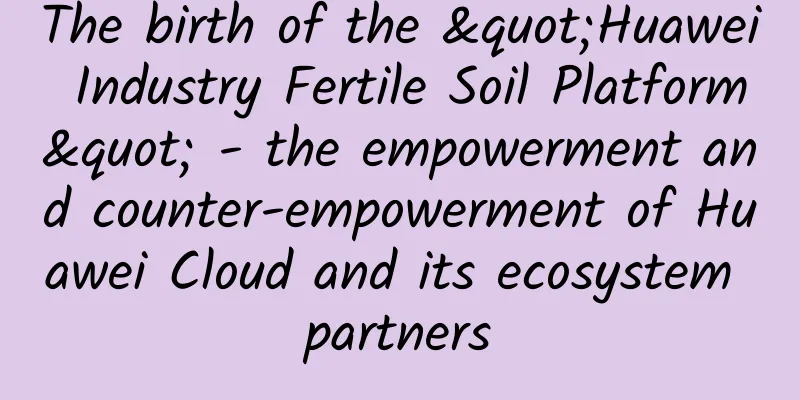
|
[Original article from 51CTO.com] At the Huawei China Ecosystem Partner Conference 2018 which just ended not long ago, Yu Dong, President of Huawei Enterprise BG Industry Marketing and Solutions Department, explained to everyone the new "Huawei Industry Fertile Platform" architecture and announced that it will work with partners to jointly create an industry operating system (EOS, Enterprise Operation System) to help customers with digital transformation. Why was the "Huawei Industry Fertile Soil Platform" created? What are its main functions? What kind of help can it provide to partners? Yu Dong, Liu Chao, Vice President of Huawei EBG China, together with Li Fanping, Chairman of Beijing Isa Technology Co., Ltd., and Xu Shijun, Vice President of Taiji Computer Co., Ltd., accepted interviews from the media and shared their gains and growth on the "Huawei Industry Fertile Soil Platform".
HUAWEI CLOUD and its ecosystem partners work hand in hand Plowing the fertile soil, calling for the dawn on the ridge When talking about the background of the birth of the "Huawei Industry Fertile Soil Platform", we cannot fail to mention the changes in the way Huawei cooperates with its partners. In the past, most of Huawei's partners were channel sales partners, and the goal of cooperation between the two parties was to sell more Huawei products. But now the types of partners have changed, and Huawei and its partners are more and more integrated in technology. When the two parties went to build joint solutions, Huawei found that it was necessary to build a common platform on which Huawei could provide products, solutions, and technical capabilities to help partners build businesses at the upper level and play a connecting role. On the Huawei Industry Fertile Soil Platform, Huawei can not only build joint solutions with partners, but also make some attempts and explorations with everyone. Yu Dong said that Huawei's industry fertile soil platform has also created more sales models. In the past, most of them were the simplest and most direct models. Assuming Huawei is A, Huawei products are sold through partners. Now it has become Huawei and another partner (assuming B) jointly build a solution. Then this jointly built solution can actually be sold externally through Huawei's other channel system (assuming C), that is, a new model of A+B selling to C, or even a model of A+B+C selling to D. Not only that, it is conceivable that Huawei's industry fertile soil platform will also encourage partners to develop more solutions on it in the future. Liu Chao told reporters that by the end of last year, Huawei and its partners had jointly released 530 solutions, and this year they plan to extend the number to 800, or even more. The reporter believes that the poem "Five-Character Verses: Dawn Farming" in the "Le Tian Collection" contains a line "Plowing the fertile soil, calling for the morning light on the ridge" which is similar to Huawei's fertile soil platform. Working hard is because we know that hope is not far away in the future, and we also look forward to fertile soil to bring more harvests. For Huawei, fertile soil nourishes "all things" and is also an indispensable soil for the future ecology. Ecological prosperity is inseparable from empowerment and counter-empowerment In fact, after returning from the Huawei China Ecosystem Partner Conference 2018, the reporter has been thinking about a question: Huawei talked about "black soil", "fertile soil platform", and many stories about how to grow together with partners, but the ecosystem must not be dominated by Huawei alone, but a state of common prosperity. So from the perspective of partners, what do they give back to Huawei? What value do they give back to the ecosystem? This question was answered by Li Fanping, chairman of Beijing Issa Technology Co., Ltd., and Xu Shijun, vice president of Taiji Computer Co., Ltd. Li Fanping frankly said that, taking public safety as an example, when the joint solution is implemented, a huge amount of pictures and traffic data will be generated every day. The storage and call of this data require Huawei to provide basic resources, including storage resources, computing resources, and Huawei's storage server cloud platform. Taking Shandong as an example, a village needs about 1,000 cameras. If Shandong Province implements monitoring, processing and analysis every day, the number of images captured will be 8 to 10 million, which requires Huawei to provide a huge amount of storage and computing resources, which is a very large order of magnitude. Xu Shijun believes that in the ecosystem, different roles are mutually inclusive and interdependent. Therefore, the ecosystem needs not only Huawei's care, but also the care of every ecosystem partner to ensure the health and integrity of the ecosystem and form a mutually beneficial system. Huawei has always provided partners with the maximum support and delivery between "not touching applications and not touching data". He believes that Huawei is now infinitely close to these two boundaries, and can provide the greatest support without crossing the line to cause partners to worry and feel uneasy. Xu Shijun gave an example, saying that this year Taiji hopes to build a media convergence cloud in the media industry. This cloud will be built on the Huawei Cloud public cloud, and once promoted, it will bring great benefits. For Huawei, Taiji will use Huawei Cloud's resources. More importantly, Taiji can work with Huawei to form a best practice on the Huawei Cloud platform, attract more customers in the media industry, and enhance the competitiveness of Huawei and Taiji in the media industry. "Huawei cooperates with the best partners in the industry. The first stage is joint production to form high-quality solutions. The second stage is for both parties to use their respective advantages to promote them. The third stage is to work together to generate and harvest value." Xu Shijun emphasized that Huawei's provision of such an enabling platform is very popular for customer solution and software developers like Taiji, and it also encourages partners to put more and better content of their own on the platform to be nurtured together. Liu Chao finally added that Huawei is a leading company and has the responsibility to improve the market environment, make the industry soil more fertile, and nourish a forest. On Huawei's industry fertile soil platform, no matter how big or small the partner is, as long as they can bring value to users, they can find their place in the fertile soil of Huawei's ecosystem. "This is the key to our building an ecological platform, including a platform of platforms, and becoming black soil." [51CTO original article, please indicate the original author and source as 51CTO.com when reprinting on partner sites] |
<<: The 5G era is unlikely to change the market structure of operators
>>: In the second half of cloud computing, how can operators embrace open source?
Recommend
This year it accounts for 50%, and next year it is expected to account for 80%, and 5G mobile phones will explode
In the past year since 5G was put into commercial...
Understanding HTTP and TCP protocols from an HTTP request
[[347384]] From an HTTP request to see the princi...
Core technologies for building 5G networks: the differences and connections between SDN and NFV
We often hear network operators and equipment ven...
How to implement online documents for multi-person collaboration
Due to business needs, I came into contact with o...
Another batch of long transactions, who is to blame for the P0 failure?
In recent weeks, there have been many service err...
Why does 5G require huge investment, but the final experience feels not much different from 4G?
Many people say that the reason why 5G is not ver...
Unleashing the power of fiber optics, many changes are waiting
We have all been amazed at the power and speed of...
IP address conversion: conversion between numbers and strings
There are generally two formats for storing IP ad...
Microsoft discontinues SQL Server on Windows Containers Beta project
In 2017, Microsoft launched the SQL Server on Win...
11 key visualizations for SD-WAN success
SD-WAN deployments are quickly becoming a major f...
How Can 5G and Edge Computing Benefit Warehouse Automation?
The concept of Industry 4.0 is driving the popula...
The web standard is always MIME version 1.0
Introduction There is no order without rules, and...
Redis: How do I communicate with the client?
[[406813]] There is a saying in the martial arts ...
F5 security experts talk about DevSecOps: security by design
If someone asks, "What is changing the techn...
Analysis of the development trend of millimeter wave communication technology market from 2020 to 2027
In 2019, the global millimeter wave communication...
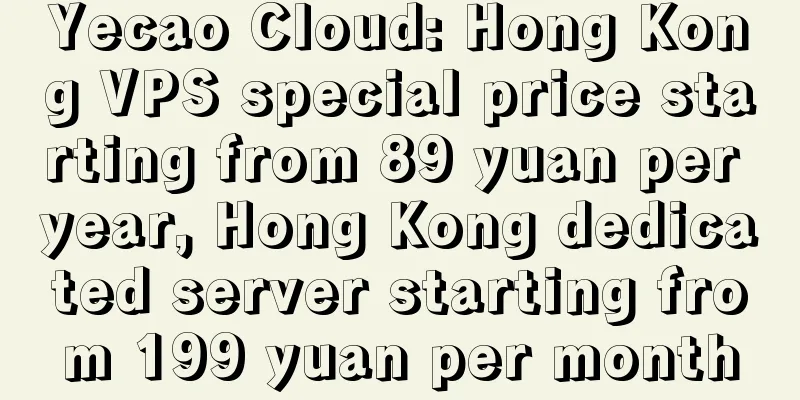


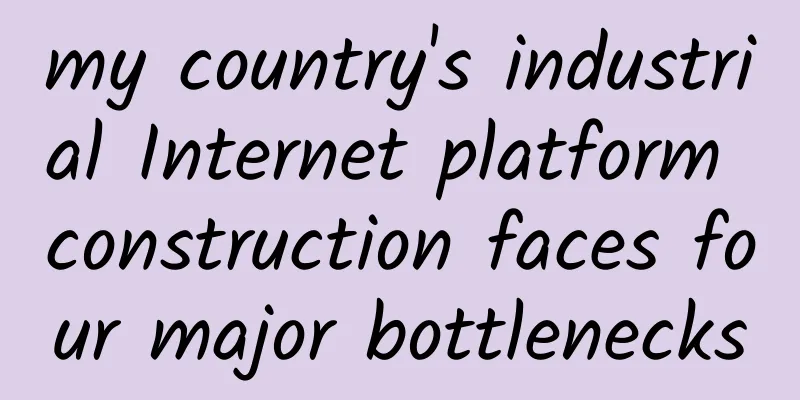
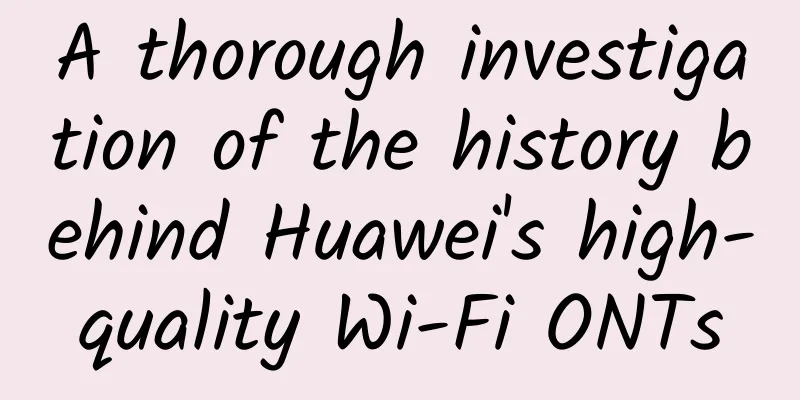
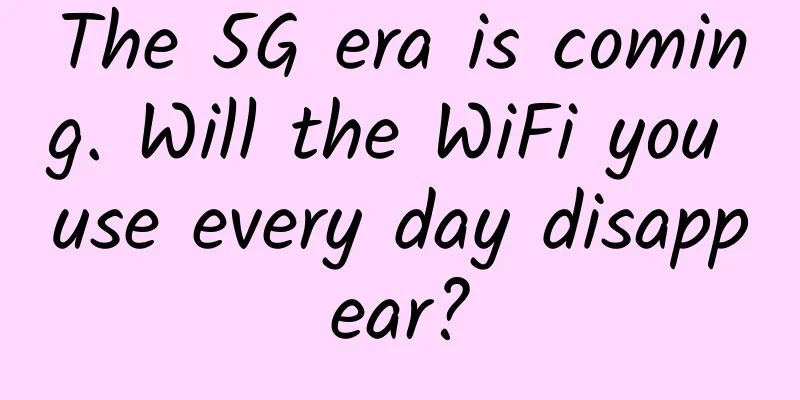
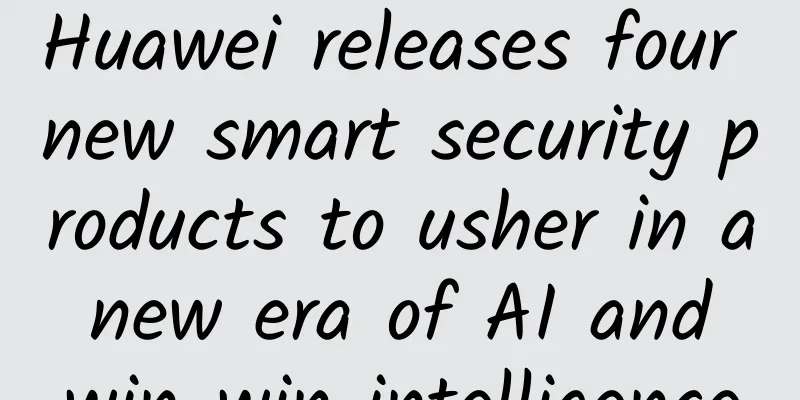


![[LeaTech Summit Review] Red Hat Global Vice President Cao Hengkang: The secret of digital transformation lies in people "cooperation"](/upload/images/67eb9c52f1eab.webp)